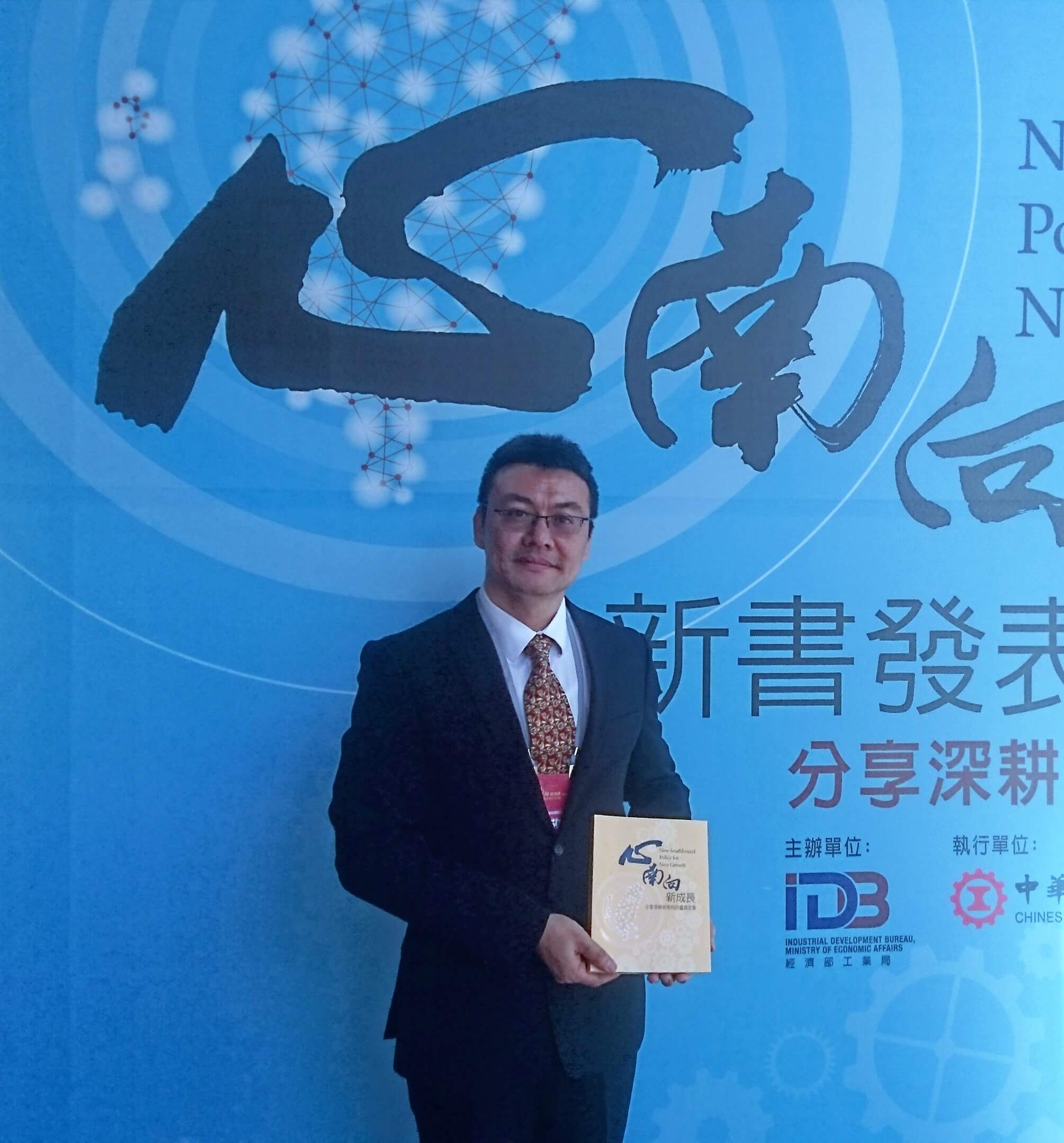Taya Vietnam shares success experiences and its strategy of relying on the Vietnamese National Quality Award〔Commercial Times〕

2017/12/16

Image description: Mr. Hsu, Ching-Yao, Vice President of Taya Vietnam, attends the book presentation and discussion meeting for a new book titled “New Horizons – Success Stories of Taiwanese Entrepreneurs in their Commitment to the New Southbound Policy” and shares his management experiences (Image provided by Taya Group)
Reporter Yeh, Tsun-Che/Report from Taipei
The book titled “New Horizons – Success Stories of Taiwanese Entrepreneurs in their Commitment to the New Southbound Policy” presents the success stories of 31 Taiwanese Entrepreneurs in Southeast Asia. On the 15th, the book was officially presented by the Industrial Technology Research Institute (ITRI) and the Chinese National Federation of Industries and a discussion meeting was held in the Taipei International Convention Center. In his address, Mr. Jong-Chin Shen, Minister of Economic Affairs, pointed out that the book aims to provide success models for Taiwanese entrepreneurs and ensure the smooth implementation of the new southbound policy by providing case studies. Taya Vietnam Electric Wire and Cable Joint Stock Company is one of the success stories presented in the book. Mr. Hsu, Ching-Yao, Vice President of Taya Vietnam, participated in the discussion to share his management experiences.
Mr. Rock Hsu, Chairman of the Chinese National Federation of Industries, pointed out during the discussion meeting that the combined GDP of 10 ASEAN nations and six south Asian nations amounts to 5.1 trillion USD and the annual economic growth rate for the next 5 years is expected to reach 6%. These nations also offer demographic dividends and unlimited investment potential. However, Taiwanese entrepreneurs must shift their focus from manufacturing to new cooperation models to create win-win situations.
During the discussion meeting, ITRI - IEK director Meng-Zong Su provided a guided reading of the new book by focusing on the theme of Innovative Industry Models in the context of the new southbound policy. Mr. Hsu, Ching-Yao, Vice President of Taya Vietnam, shared his experiences in a group discussion on the energy and infrastructure industries.
Taya started to make investments in Vietnam in 1994 and completed the plant in Dong Nai Province in July of 1995. Ten years later, a branch and a new plant were set up in the northern Hai Duong Province. Mr. Hsu, Ching-Yao stated that it is much wiser to establish bases in the northern and southern part of the country than waste time on transportation. This is the first insight he shared during the meeting.
Mr. Hsu, Ching-Yao pointed out that although the Taya Brand enjoys a certain popularity and loyalty among Taiwanese entrepreneurs, the company has to rely on its actual capabilities in the acquisition of major projects including public construction projects or turnkey electromechanical projects.
His second insight is as follows: “Don’t engage in cut-throat price competition and insist on the core values of quality, safety, and service.”How can quality be verified? Mr. Hsu, Ching-Yao pointed out that Taya Vietnam invests maximum efforts in a down-to-earth fashion. To prove its capabilities, the company pursued the “National Quality Award”, which is the highest award in Vietnam. A large number of enterprises vie for this award and the selection criteria are very strict. Enterprises that wish to participate in the selection process must be provincial quality gold award recipients to be eligible to be nominated for the national evaluations. After overcoming obstacles and challenges at all levels, Taya earned a gold award on its first attempt and two consecutive awards over a period of six years.
Despite the fact that Taya has already gained a firm foothold in the Vietnamese market, the company does not rest on its laurels and aims to successfully launch its products on other markets such a Myanmar, Cambodia, and Laos by relying on the advantage of tariff-free trade between ASEAN countries. However, the language barrier is a major obstacle. As of this year, the company therefore arranges visits of employees and customers of Hai Duong Branch to Taiwan on a trial basis to promote interactions and exchanges. His third insight is therefore as follows: “Put utmost effort into making new friends and training new talent.”
During the discussion meeting, Mr. Huang, Chien-Chih AVP of China Steel, Mr. Stanley Kang, Chairman of the Joint Foreign Chambers of Commerce in Thailand, and Mr. Lin, Chih-Fu, COO of the non-profit organization Startboard also shared their industry observations and offered recommendations to enable a higher number of Taiwanese entrepreneurs to seize new business opportunities opened up by the new southbound policy through mutually beneficial and win-win cooperation models.

